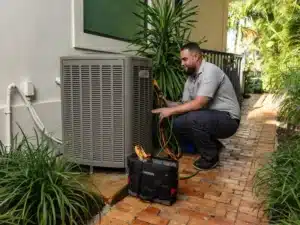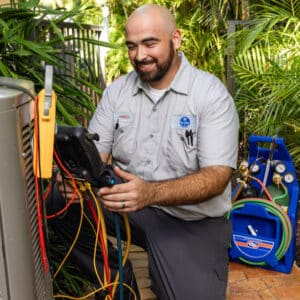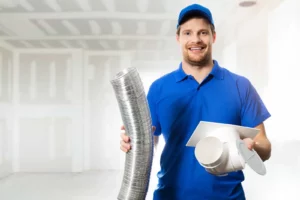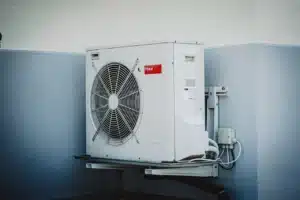How Regular AC Maintenance Can Save You Money
Maintaining your air conditioner regularly is more than just a...
Installing a new air conditioning system in your Florida home is a significant investment that can enhance comfort and energy efficiency. However, understanding the factors that influence the cost of AC installation can help you make informed decisions and budget effectively. Here are the key considerations that affect the price of AC installation in Florida.
The type and size of the air conditioning unit you choose have a direct impact on installation costs. Larger homes typically require more powerful units, which can be more expensive. Additionally, the type of AC unit—such as central air conditioning, ductless mini-split systems, or heat pumps—will affect both the upfront cost and installation complexity.
Energy efficiency is a critical factor in both cost and long-term savings. AC units with higher SEER (Seasonal Energy Efficiency Ratio) ratings are more efficient but often come at a higher initial cost. However, they can significantly reduce your monthly utility bills over time, making them a worthwhile investment in Florida’s hot climate.
If your home already has ductwork in place, installing a traditional central air conditioning system may be more straightforward and less expensive. However, if ductwork needs modification or if you opt for a ductless system, installation costs can vary. Ductless systems, for example, require minimal disruption and can be more cost-effective in homes without existing ductwork.
The complexity of the installation process itself can influence costs. Factors such as the layout of your home, accessibility for installation technicians, and any necessary permits can all affect the overall price. Additionally, if any upgrades or modifications are required to accommodate the new AC unit, these will add to the installation expenses.
Choosing a reputable HVAC company with experienced technicians can impact the cost of installation. While it may be tempting to opt for the lowest bid, ensuring that the installation is performed correctly by qualified professionals can prevent future issues and costly repairs.
Depending on your specific needs and preferences, additional components or accessories may be necessary. This could include programmable thermostats, air purifiers, or zone control systems, each adding to the overall installation cost but potentially enhancing comfort and efficiency.
Consider the warranties offered by both the manufacturer and the HVAC company. While a longer warranty may increase the initial cost slightly, it provides peace of mind and can save money on future repairs. Maintenance plans offered by HVAC companies can also help prolong the life of your AC unit and ensure optimal performance.
When budgeting for AC installation in Florida, it’s essential to consider these factors carefully. By understanding how the type of unit, its efficiency, ductwork requirements, installation complexity, labor costs, additional components, and warranties affect the overall price, you can make a well-informed decision that meets your cooling needs and financial goals. Consulting with a trusted HVAC professional will help you navigate these considerations and choose the best AC system for your home or business.

Maintaining your air conditioner regularly is more than just a...

Florida homeowners rely on air conditioning more than most parts...

Indoor air quality is a major concern for many Florida...

Indoor air quality, often abbreviated as IAQ, plays a crucial...

Installing a new HVAC system is a significant investment in...

For many homeowners in Florida, the HVAC system is the...